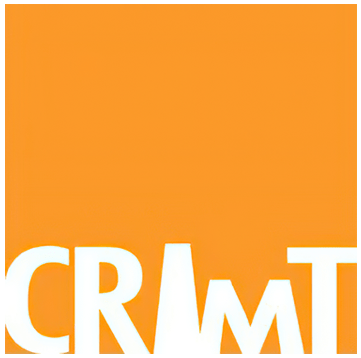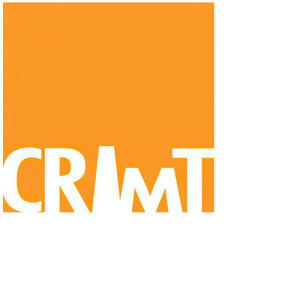CRIMT receives funding as an operating centre within the framework of the Fonds de recherche du Québec – Société et culture (FRQ-SC) Strategic Clusters’ program. CRIMT brings together 47 researchers in Quebec and 133 outside the province and has – in terms of governance structures – three research and orientation committees (Management Committee, Steering Committee and Regulatory Arena Research Coordinating Committee), a series of permanent standing committees, a general assembly and several participatory forums.
As part of our Partnership Project funded by the Social Sciences and Humanities Research Council of Canada (SSHRC), these bodies interact with an Executive Committee, as well as a Partner board composed of CRIMT researchers in Quebec, in Canada and outside of Canada.
Management Committee
CRIMT’s day-to-day administration is the responsibility of a Management Committee made up of the Centre’s Director, Co-Directors and research professionals. This committee is also responsible for the day-to-day management of the CRIMT Partnership Project and for making recommendations to the Partner board and the Executive Committee.
The Management Committee is composed of: Dalia Gesualdi-Fecteau (Director of CRIMT, University of Montreal), François Bolduc (Université Laval), Christian Lévesque (HEC Montréal), Julie Garneau (Université du Québec en Outaouais), Nicolas Roby (University of Montreal), Marjorie Gionest-Larouche (Université Laval) and Soledad Cardona Maldonado (University of Montreal).
Steering Committee
CRIMT also benefits from the guidance of a Steering Committee, which contributes – in accordance with the Centre’s objectives – to the development of scientific projects and activities. It fosters the development of a diversified leadership that is representative of CRIMT’s constituent units in Quebec. The Steering Committee is made up of the members of the Management Committee, one or more representatives of CRIMT’s founding institutions in Quebec, and one representative of the other universities in which the Centre has members in Quebec, namely McGill University, UQAM, UQO, UQTR, TÉLUQ and Université de Sherbrooke. In addition to the members of the Management Committee (above), the Steering Committee is composed of: François Bolduc (Université Laval), Dalia Gesualdi-Fecteau (Université du Québec à Montréal), Mélanie Laroche (Université de Montréal) and Vincent Pasquier (HEC Montréal).
Regulatory Arena Research Coordinating Committee
The Steering Committee is supported by a Coordinating Committee, which oversees the development of projects within the 5 research axis (regulation arenas) of the CRIMT Partnership Project. Each axis has at least two co-leaders in Quebec and two co-leaders outside Quebec, some of them experienced, others at the beginning of their career. Together, they form a bilingual, multidisciplinary and gender-balanced inter-university body that fosters the exchange of points of view and expertise, the development of international research networks and the free circulation of ideas.
Standing Committees
Members of the Management, Steering and Regulatory Arena Research Coordinating Committee benefit from the support of permanent standing committees in charge of specific mandates – which they carry out in interaction with the governance structure of the CRIMT Partnership Project.
International Scientific Committee
The International Scientific Committee is composed of experts who are independent of CRIMT’s governance structure. Its mandate is to advise the Centre on its strategic plan, the achievement of its research objectives and the development of its Partnership Project. Gerhard Bosch, retired professor at the Universität Duisburg-Essen, currently chairs this Committee.
Stakeholder Committee
The Stakeholder Committee is made up of representatives of parties who contribute or call upon CRIMT’s research. Its specific mandate is to make recommendations to CRIMT’s governance structure regarding the transfer and mobilization of knowledge and research results. The Committee is currently chaired by Roger Lecourt, former Deputy Minister of Labour of the Government of Quebec and consultant to the International Labour Office.
Equity, Diversity and Inclusion Committee
The mandate of this CRIMT Committee is to advise CRIMT’s governance structure and its Partnership Project on all aspects related to the implementation and application of measures to increase equity, diversity and inclusion in the Centre’s research activities and daily life. Charlotte Yates, President of the University of Guelph, currently chairs this Committee.
Covid-19 Working Committee
The Covid-19 pandemic is shaking up the world of work, whether it be the adoption of health measures at the point of production, the reorganization of work and the booming of teleworking, the upheaval of supply chains and the highlighting of inequalities, revealed by the essential nature of many historically devalued jobs, more often than not, done by racialized and vulnerable individuals. In addition to integrating this issue as a fault line likely to stimulate experimentation in the world of work, we felt it was important to create a space within CRIMT to discuss these issues.
The creation of a committee on the effects of the Covid-19 pandemic is intended to allow researchers, as well as partner centres, to pool their research initiatives and plan activities likely to advance our understanding of this phenomenon.
Graduate Student Consortium Coordinating Committee
The Graduate Student Consortium Coordinating Committee acts as a liaison between the governance structure and the student members, and is also responsible for the organization of at least two activities per annual cycle: one Doctoral Day and one Doctoral School. Since the Covid-19 pandemic forced the redeployment of these online activities, the committee has also been leading a series of methodological workshops on the CRIMT Teams platform since the spring of 2020. Its current members are : Eva Herman (University of Manchester), Kai-Hsin Hung (HEC Montréal), Jiyoon Park (Rutgers University), Geneviève Richard (UQAM), Isabelle Roberge-Maltais (HEC Montréal) and Justin Vinton (Rutgers University).
Student Program Funding Committee
Within the framework of the CRIMT Partnership Project, the Student Program Funding Committee is responsible for the design of funding programs, as well as the awarding of scholarship and mobility funds to the Centre’s students. Independent from other governance structures, it meets twice a year under the chairmanship of the Scientific Coordinator. Its current members are : Marie-Pier Bernard Pelletier (TÉLUQ), Clémentine Colmont (UCLouvain), as a representative of the students affairs coordinating committee, Julie Garneau (UQO) Sara Perez-Lauzon (HEC Montréal), Nicolas Roby (Université de Montréal) and Charles Tremblay-Potvin (Université Laval).
Institutional Experimentation Methodology Committee
The Institutional Experimentation Methodology Committee looks into the comparative aspects and the parameters for the elaboration of cases of experimentation. The members of the Steering Committee, as well as of the Regulatory Arena Research Coordinating Committee, contribute, on an ad hoc basis, to the work of this committee.
Knowledge Transfer and Dissemination Committee
The mandate of the Knowledge Transfer and Dissemination Committee is threefold: first, to advise CRIMT’s governance structure on the creation of the Virtual Observatory on Institutional Experimentation, which will become the public face for cases of experimentation produced as part of the Partnership Project; second, to provide suggestions – in conjunction with the Stakeholder Committee – on how to engage stakeholders and the public; third, to organize open forums that can reach both labour market stakeholders and a broader public. The members of the Steering Committee, as well as of the Regulatory Arena Research Coordinating Committee, contribute, on an ad hoc basis, to the work of this committee.
General Assembly
CRIMT has a General Assembly made up of the 47 co-researchers who are CRIMT members in Quebec (as a Strategic Cluster funded by the Fonds de recherche du Québec – Société et culture).
Participative Forums
CRIMT has four types of participative forums. First, there are working groups and committees responsible to develop the case template, organize scientific activities or publish volumes and thematic issues of journals. Second, open forums are held, such as international symposiums and seminars. Thirdly, a doctoral consortium, which meets twice a year on the occasion of the Doctoral School and Doctoral Days. Lastly, public forums, known as ‘Outreach activities’, which bring together academics and stakeholders from the world of work.


